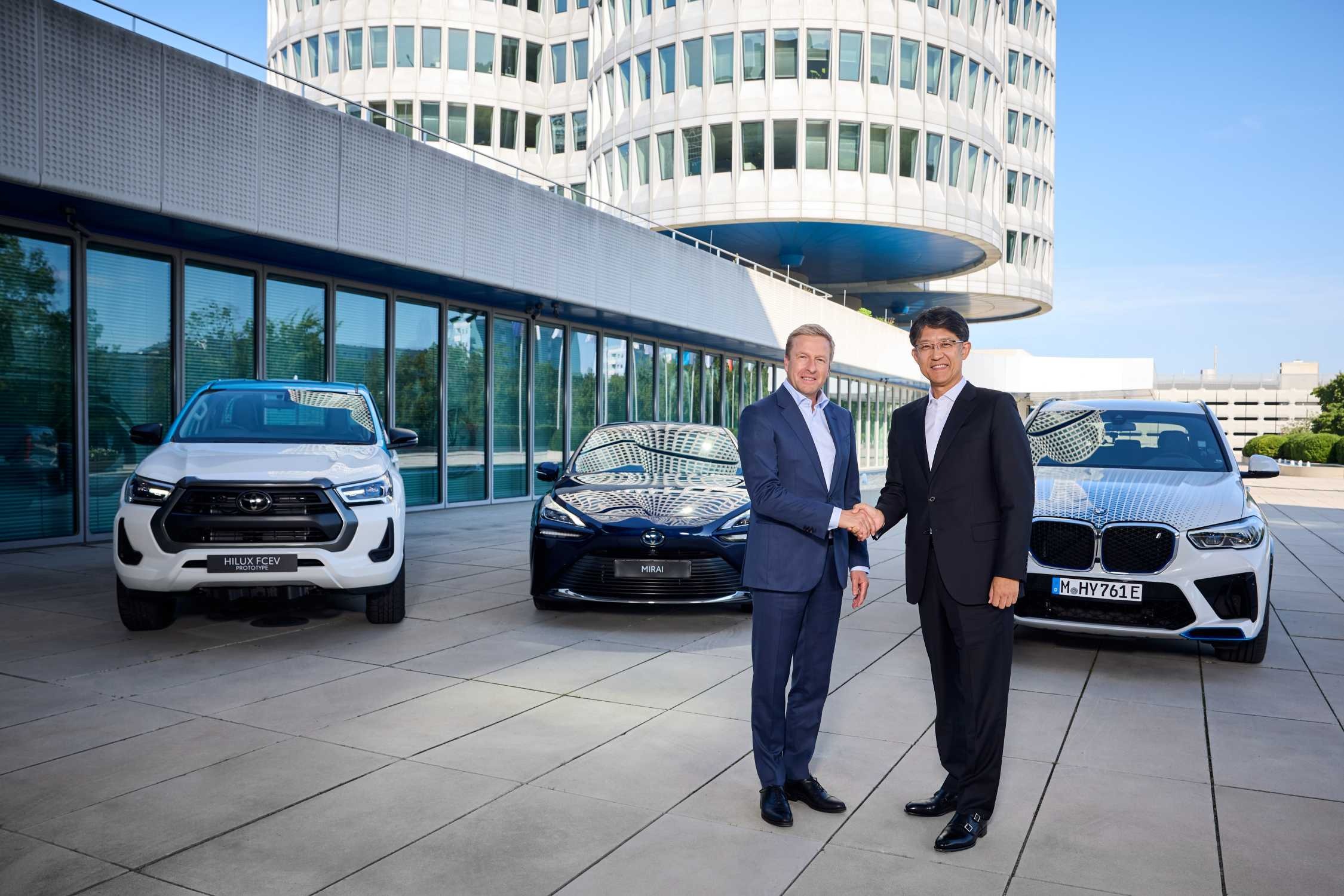BMW has announced plans to introduce its first-ever series production fuel cell electric vehicle (FCEV) in 2028, marking a major step forward in its commitment to offering zero-emission, all-electric powertrain options. In collaboration with Toyota Motor Corporation, this project will leverage the strengths of both automotive giants to bring a new generation of fuel cell technology to the road. This partnership reflects both companies’ shared vision for advancing the hydrogen economy as a key pillar in the future of sustainable mobility.
BMW’s entry into fuel cell vehicle production underscores its commitment to providing customers with a variety of zero-emission options. “This is a milestone in automotive history: the first-ever series production fuel cell vehicle to be offered by a global premium manufacturer. Powered by hydrogen and driven by the spirit of our cooperation, it will underscore how technological progress is shaping future mobility,” said Oliver Zipse, Chairman of the Board of Management at BMW AG.
Toyota President Koji Sato added, “We are pleased that our long-standing collaboration with BMW has entered a new stage. Together, we share a passion for cars and a belief in a multi-pathway approach to carbon neutrality. Our joint development of next-generation fuel cell systems and the expansion of hydrogen infrastructure will bring us closer to realizing a hydrogen society.”
Shared Powertrain Technology for Passenger and Commercial Vehicles
BMW and Toyota will jointly develop a shared fuel cell powertrain system, using their combined expertise to lower production costs and accelerate the commercialization of hydrogen vehicles. The powertrain system will be incorporated into both companies’ individual models, maintaining the distinct identities of BMW and Toyota, while offering customers a broader range of FCEV options.
The collaboration builds on the success of BMW’s iX5 Hydrogen pilot fleet, which has undergone rigorous global testing. With the foundation of next-generation powertrain technology, BMW’s first hydrogen-powered production model will launch in 2028, adding a new dimension to its all-electric lineup. The FCEV technology will complement battery electric vehicles (BEVs), plug-in hybrid electric vehicles (PHEVs), and internal combustion engines (ICEs), offering customers even more diverse and sustainable mobility solutions.
A Stronger Partnership for a Greener Future
BMW and Toyota’s collaboration extends beyond vehicle development, aiming to foster the growth of the hydrogen economy. Both companies are actively advocating for expanded hydrogen refueling and BEV charging infrastructure to support the increasing adoption of sustainable mobility technologies. By working with governments and investors, they hope to create a supportive framework that encourages the early-stage adoption of hydrogen mobility.
Additionally, the two automotive giants are working on local projects to accelerate the development of hydrogen infrastructure. This includes promoting a sustainable hydrogen supply chain through partnerships with companies focused on low-carbon hydrogen production, distribution, and refueling facilities.
Hydrogen: The Key to a Decarbonized Future
Hydrogen holds great promise as a clean energy carrier, enabling the efficient storage of renewable energy and balancing supply and demand within the energy grid. In sectors where battery electric solutions may not be optimal, hydrogen-powered FCEVs provide a viable alternative, offering longer range and faster refueling times.
BMW and Toyota’s shared commitment to developing and commercializing hydrogen technology is set to reshape the landscape of electric mobility. Their joint efforts are not only advancing fuel cell vehicle technology but also paving the way for a cleaner, more sustainable future powered by hydrogen.


